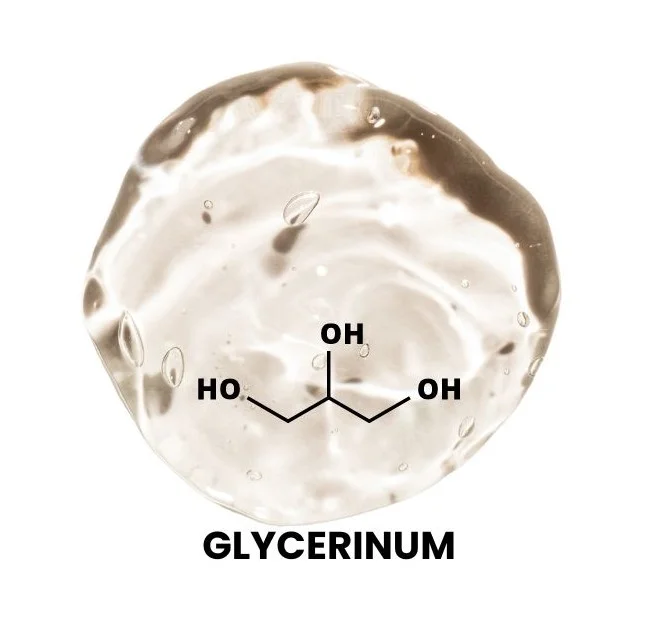Glycerinum, commonly known as glycerine, is a versatile substance used both in conventional and homeopathic medicine.
In homeopathy, it is dynamized to harness its deep and long-lasting effects on the body, particularly in building up tissue and improving overall nutrition.
It is especially beneficial in conditions of marasmus (severe malnutrition and wasting), general debility, diabetes, and other nutritional disorders.

SOURCE INFORMATION
Scientific Classification
- Kingdom: Plantae
- Clade: Angiosperms
- Clade: Eudicots
- Clade: Rosids
- Order: Malpighiales
- Family: Euphorbiaceae
- Genus: Jatropha
- Species: Jatropha curcas
Origin and Historical Facts
- Glycerine, also known as glycerol, is a simple polyol compound.
- It is a colorless, odorless, viscous liquid that is sweet-tasting and non-toxic.
- Glycerine is widely used in pharmaceutical formulations.
- It was discovered in 1779 by the Swedish chemist Carl Wilhelm Scheele, who obtained it by heating olive oil.
- In homeopathy, Glycerinum is used in a dynamized form to treat a range of conditions by enhancing the body’s nutritional status and addressing various physical and mental debilities.
DRUG PATHOGENESIS
Glycerinum primarily disturbs nutrition in its primary action, leading to issues like fermentation and burning in the stomach and oesophagus.
However, in its secondary action, it improves the general state of nutrition, which makes it valuable in treating chronic wasting conditions, diabetes, and severe debility.
KEY CHARACTERISTICS
- Deep and long-acting effects
- Builds up tissue and improves nutrition
- Used for marasmus, debility, and diabetes
- Treats both physical and mental exhaustion
DETAILED ORGAN SYMPTOMS
HEAD
- Fullness and Throbbing: The head feels full and throbs, leading to mental confusion and severe headaches, particularly two days before menstruation.
- Occipital Fullness: There is a sensation of fullness in the back of the head (occiput).
NOSE
- Congestion and Sneezing: The nose feels stopped up, accompanied by sneezing and an irritating coryza (runny nose).
- Crawling Sensation: There is a sensation of crawling on the mucous membrane of the nose.
- Post-Nasal Drip: Continuous dripping of mucus down the throat from the back of the nose.
CHEST
- Hacking Cough: A persistent, weak hacking cough with a feeling of fullness in the chest, often associated with influenzal pneumonia.
STOMACH
- Fermentation and Burning: Fermentation in the stomach and a burning sensation in the stomach and oesophagus.
URINARY
- Profuse Urination: Frequent and profuse urination, often with increased specific gravity and sugar in the urine, indicative of diabetes.
FEMALE REPRODUCTIVE SYSTEM
- Profuse Menstrual Flow: Heavy, prolonged menstrual flow with a bearing down sensation and heaviness in the uterus.
- Exhaustion: General sense of physical exhaustion.
EXTREMITIES
- Rheumatic Pains: Remittent (fluctuating) rheumatic pains.
- Painful Feet: Feet feel painful, hot, and enlarged.
RELATIONSHIP WITH OTHER DRUGS
- Compare with: Lactic acid, Gelsemium, Calcarea carbonica.
DOSE
- Homeopathic Potency: Thirtieth and higher potencies are used.
- Non-homeopathic Use: Pure glycerine in teaspoonful doses, three times a day, combined with lemon juice, for treating pernicious anemia.
Frequently Asked Questions
What is Glycerinum used for in homeopathy?
- It is used to treat marasmus, general debility, diabetes, and conditions of poor nutrition and tissue wasting.
How does Glycerinum help with diabetes?
- Glycerinum addresses the frequent and profuse urination with increased specific gravity and sugar, helping to manage diabetes-related symptoms.
Can Glycerinum be used for respiratory issues?
- Yes, it can be used for symptoms like a hacking cough and a feeling of fullness in the chest, often related to influenzal pneumonia.
Meaning of Difficult Words
- Marasmus: Severe malnutrition causing weakness and wasting.
- Debility: Physical weakness, especially as a result of illness.
- Coryza: Inflammation of the mucous membrane in the nose, causing a runny nose.
- Influenzal Pneumonia: A type of pneumonia caused by the influenza virus.
- Esophagus: The tube that connects the throat to the stomach.
- Leucorrhea: A whitish or yellowish discharge from the vagina.
- Remittent: Symptoms that fluctuate in intensity.
- Pernicious Anemia: A severe type of anemia caused by the body’s inability to absorb vitamin B12.
This comprehensive drug picture provides an in-depth understanding of Glycerinum, its sources, applications, and the specific symptoms it addresses, making it a valuable remedy in homeopathy for a variety of conditions.
